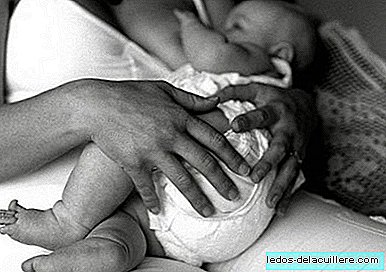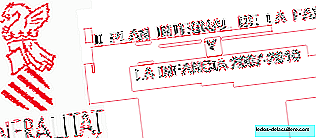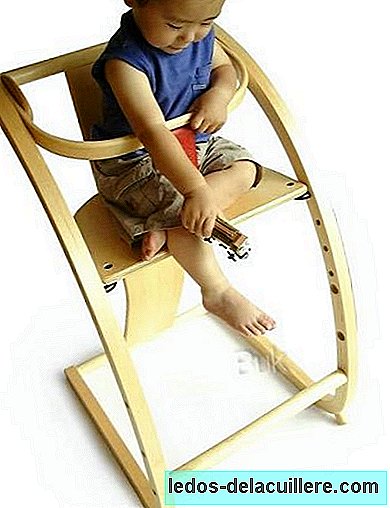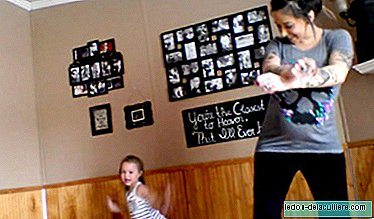
Very widespread expressions to talk about the way in which the baby has been raised are those of "success or failure of breastfeeding." We talk about breastfeeding in terms of success and failure, I first, as we saw recently in the post "How to be a passive witness to the failure of breastfeeding."
However, I already told you that I did not like that terminology too much, which on the other hand is very good to convey what we are referring to. But there is an important component of the language, the connotation or the inferred, implicit meaning, that makes those terms convey and say much more.
Because inevitably success (the word "success") is associated with good and failure (the word "failure") with bad, and it is easy to get carried away by the implication: success - good - good mother or failure - bad - bad mother.
But let's see in principle why we talk about successes and failures and what can be negative about this terminology.
A society of successes and failures
In this society in which everything is measured with scales of success in which one (a child, a woman, an adult) is better the more advances you make, the more note you get, the more achievements you have in your work ... it is logical that the issue of breastfeeding is also measured like this.
But I encourage you not to think about successes and failures, and I tell you knowing that it is not easy and with the experience of having cried in rage and helplessness when I felt myself fail. It may sound strange, considering that my daughters were breastfed beyond the year at the first and two years at the little girl.
But with both of us we had to resort to artificial milk before six months, a failure on my scale of the perfect "challenge": exclusive breastfeeding until six months.
But I think now, from a distance I would take it more calmly. Maybe the success was that the girls finally gained weight after a month of being stuck and even losing some weight. I have already told you on some occasion the fact that my daughters slept so many hours in a row could have influenced the decrease in milk. I looked for a thousand and one explanations for that "failure" because it made me feel bad ...
And this happened towards the fourth and fifth month of the girls, many women happen after childbirth. When your idea is to breastfeed the baby from birth, and something goes wrong.

The fear of failure
I do not like to give advice that I have not been asked, but if I have told my friends that they would have a baby, it is: patience with the topic of breastfeeding. Patience, patience, patience, because at first it might not be as easy or beautiful as we expected. The same would have told the mother that she stopped trying it in the hospital, of which I was a passive witness as I told you.
Even, everything might be better for us if we did not feel that pressure of success and failure, because we are calmer, we rely more on ourselves. The fear of failure can block us, but we must make an effort to think that we do not fail, just as the baby does not.
I am the first to probably continue talking about breastfeeding successes and failures, but I will do it more carefully. Because after thinking about it I would like more women to feel breastfeeding as something natural and not in terms of triumph or defeat, and not suffer so much if something does not go as expected because they think they have failed.
Good and bad mothers
They have not failed as mothers, nor have others been more successful in that regard. The terms "failure" and "success" inevitably lead us to the "bad" and the "good", and that dichotomy is dangerous, it is misleading. And in this way we come to the other end of this matter, because those implications, those secondary meanings associated with words, make us face ridiculously, as I have often perceived in different forums:
"I am a better mother because I have given my baby a tit and she has not. I have succeeded. My breastfeeding has been a success."
I am not saying that someone says those words literally, but the failure-bad mother implication is as we have explained automatically, subconsciously, and the same happens to the contrary. I imagine that is why many women are attacked, they feel attacked, when they speak in those terms.
And this although it is not the intention of the issuer to attack them, which I assume is usually so, and in fact in the blog we often use those terms.
But we have to be aware that a good mother has many qualities and these are not at odds with the bottle, just as they are not implicit in breastfeeding the baby. And here we would enter the debate of what is a good or a bad mother, if there are universal "standards" or not ... But that is another matter.
In short, I hope I have explained why talk about breastfeeding successes and failures It can sometimes lead to secondary ideas that affect women in one way or another. We own our words, but let's not forget that they have much more power than we think.
Photos | Christy Scherrer and Oneras on Flickr In Babies and more | Is she a better mother, one who raises with attachment? Breastfeeding and capital sins












